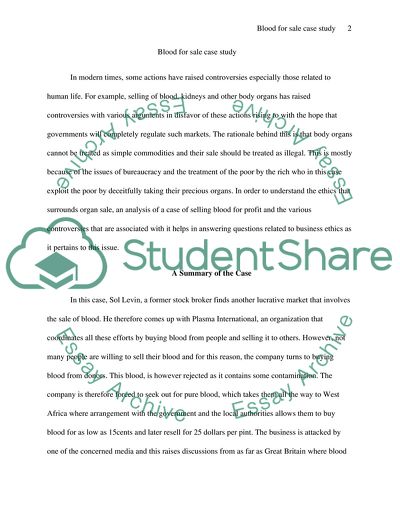Cite this document
(Selling Blood Is a Business Assignment Example | Topics and Well Written Essays - 2250 words, n.d.)
Selling Blood Is a Business Assignment Example | Topics and Well Written Essays - 2250 words. https://studentshare.org/social-science/1881317-blood-for-sale-case-study
Selling Blood Is a Business Assignment Example | Topics and Well Written Essays - 2250 words. https://studentshare.org/social-science/1881317-blood-for-sale-case-study
(Selling Blood Is a Business Assignment Example | Topics and Well Written Essays - 2250 Words)
Selling Blood Is a Business Assignment Example | Topics and Well Written Essays - 2250 Words. https://studentshare.org/social-science/1881317-blood-for-sale-case-study.
Selling Blood Is a Business Assignment Example | Topics and Well Written Essays - 2250 Words. https://studentshare.org/social-science/1881317-blood-for-sale-case-study.
“Selling Blood Is a Business Assignment Example | Topics and Well Written Essays - 2250 Words”. https://studentshare.org/social-science/1881317-blood-for-sale-case-study.


